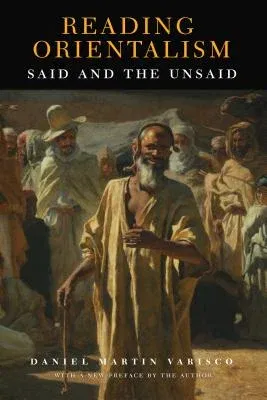The late Edward Said remains one of the most influential critics and
public intellectuals of our time, with lasting contributions to many
disciplines. Much of his reputation derives from the phenomenal
multidisciplinary influence of his 1978 book Orientalism. Said's
seminal polemic analyzes novels, travelogues, and academic texts to
argue that a dominant discourse of West over East has warped virtually
all past European and American representation of the Near East. But
despite the book's wide acclaim, no systematic critical survey of the
rhetoric in Said's representation of Orientalism and the resulting
impact on intellectual culture has appeared until today.
Drawing on the extensive discussion of Said's work in more than 600
bibliographic entries, Daniel Martin Varisco has written an ambitious
intellectual history of the debates that Said's work has sparked in
several disciplines, highlighting in particular its reception among Arab
and European scholars. While pointing out Said's tendency to
essentialize and privilege certain texts at the expense of those that do
not comfortably it his theoretical framework, Varisco analyzes the
extensive commentary the book has engendered in Oriental studies,
literary and cultural studies, feminist scholarship, history, political
science, and anthropology. He employs "critical satire" to parody the
exaggerated and pedantic aspects of post-colonial discourse, including
Said's profound underappreciation of the role of irony and reform in
many of the texts he cites. The end result is a companion volume to
Orientalism and the vast research it inspired. Rather than contribute to
dueling essentialisms, Varisco provides a path to move beyond the binary
of East versus West and the polemics of blame.
Reading Orientalism is the most comprehensive survey of Said's writing
and thinking to date. It will be of strong interest to scholars of
Middle East studies, anthropology, history, cultural studies,
post-colonial studies, and literary studies.

